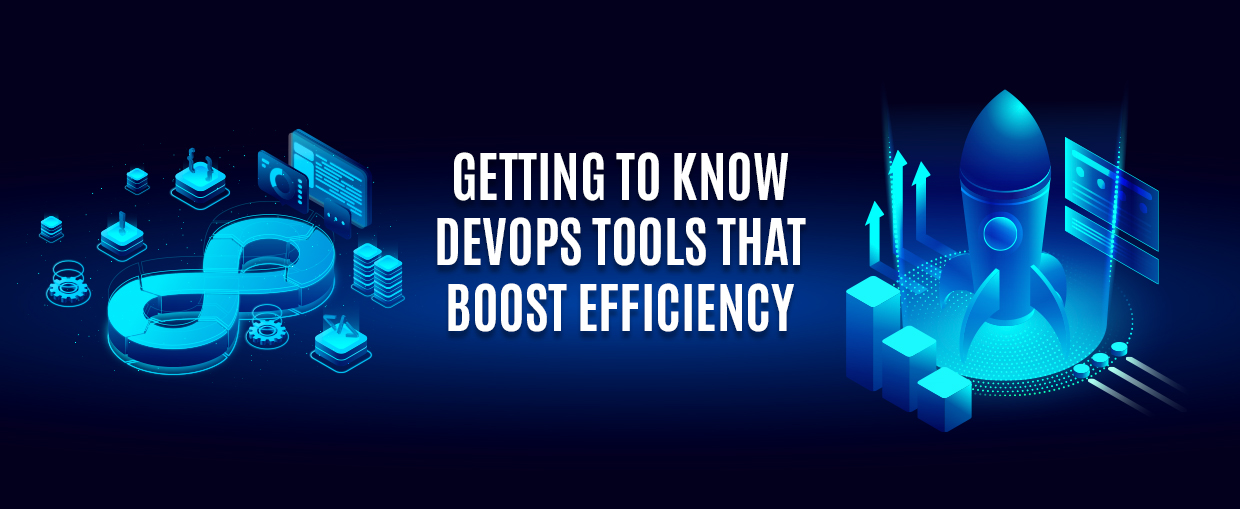Overcoming the limitations of technical delivery is essential for long-term success in the modern corporate environment. The need for quick and high-calibre application delivery highlights how standards are changing in today’s age. DevOps approaches have become widely accepted as a result of this paradigm shift, which has increased demand for DevOps tools and service providers.
A set of practices known as “DevOps” aims to integrate IT operations with software development, thereby shortening the Systems Development Life Cycle (SDLC) and ensuring the continuous delivery of high-quality software. Its main goals are to increase development speed and scalability, release software frequently, and automate as many software development processes as possible. Based on data gathered by Statista from a survey of companies that sell software products, 47% of respondents said they follow the DevOps methodology during software development.
This blog will offer a selection of top-notch DevOps tools that help your team develop software more quickly and efficiently.
What are DevOps Tools?
DevOps practices are carried out using DevOps tools, which are essential for upholding transparency, automation, and teamwork as the pillars of your value stream. The development, operations, security, and business teams, among other stakeholders, can share and exchange technical knowledge and information more effectively thanks to these solutions. This cooperative strategy makes sure that information and communication flow freely, which eventually improves the efficiency of processes used in the delivery of products.
Organizations may align with industry best practices and foster innovation throughout the product development lifecycle by utilizing these technologies to create an integrated approach to development, operations, and security.
Choosing the Right DevOps Tools
Application and Technology Infrastructure: Which software and applications are you using? Which infrastructure technologies drive those applications? Does the product support infrastructure and/or applications hosted in local, cloud, or hybrid environments?
Open and extensive integration: Ensure that the tools you select are compatible with various DevOps pipeline technologies. Examples of these include testing frameworks (e.g., Selenium or JUnit), project management systems (e.g., Jira), communication platforms (e.g., Slack or Teams), and tools for Continuous Integration (CI) and Continuous Development (CD) (e.g., Jenkins and GitHub).
Developer Process Integration: Make sure the tool you choose can be integrated with project management systems, the Integrated Development Environments (IDEs), and the development tools you currently use.
Scalability and ease of use: Ensure that your team can quickly become efficient with the tool and that it will grow with your organization as your team’s capabilities evolve.
List of DevOps Tools
- Git
Git is a distributed version control system and a free, open-source DevOps solution that handles any kind of project quickly and effectively, regardless of size. It’s a distributed source code management system (SCM) application that makes it simple for developers to roll back previous versions and monitor development progress. - Ansible
Ansible is an open-source DevOps tool that offers software-related services, including automation, orchestration, configuration, cooperation, and IT infrastructure management. With modules that make managing different applications easier and minimize complexity, it unifies and automates testing, performance, development, and deployment to increase productivity. Ansible is an adaptable solution that lets you focus on the results. - Maven
Maven is an essential tool in SD and DevOps because of its capabilities of overseeing project dependencies, building, and project lifecycle management. Maven is a powerful build automation and project management tool that streamlines the packaging, distribution, testing, and compilation processes to reduce the complexity of developing Java-based projects. It guarantees reproducible and consistent builds, which facilitates effective collaboration and the production of high-calibre software. - Docker
Docker is a lightweight DevOps technology that uses containerization to speed up SDLC processes. It encapsulates applications and dependencies, guaranteeing consistent and reproducible deployments across environments. Because of the increased flexibility, efficiency, and isolation that this tool provides, Docker is a crucial part of DevOps and continuous integration. - Kubernetes
Known as K8s, Kubernetes is Google’s open-source container orchestration framework that simplifies container management. It is a technology that divides the program’s container into logical components and allows for application scaling, upgrading, automatic deployment, and management. The tool is essential for attaining flexibility, dependability, and cost-effectiveness in application deployment due to its resilience, self-healing attributes, and support for hybrid and multi-cloud settings. - Slack
Slack is an important tool used by businesses and organizations worldwide. It is important thanks to the fact that it makes teamwork and communication easier. Whether they are working together in the same workplace or remotely, Slack’s integration features, file sharing, and real-time chat let teams stay connected across time zones and locations while streamlining processes and increasing productivity. Slack is an efficient platform that facilitates the sharing of knowledge, organizing projects, and quick decision-making. - Jenkins
Jenkins is a continuous integration server and DevOps technology that facilitates task execution and monitoring. It is also one of the finest tools for software deployment, given that it offers hundreds of plugins for developing, distributing, and automating any project. Its significance stems from its function as an outstanding automation server that enables continuous integration and continuous delivery (CI/CD) pipelines. - Terraform
With a standardized CLI workflow, Terraform is a reliable DevOps and open-source infrastructure-as-code (IAC) platform that guarantees the management of hundreds of cloud services. Furthermore, it’s an excellent tool that expedites the creation, maintenance, and versioning of the AWS environment. Terraform offers an expanded spectrum of functionality and deconstructs the configuration into smaller parts to improve the maintenance, management, and reusability of your DevOps application. - Selenium
Because it continues to be relevant in assuring the quality of online applications, Selenium is an essential tool for software testing and automation. Selenium is an automation tool that helps developers and quality assurance teams automate repetitive testing jobs, do cross-browser testing, and make sure online applications work without a hitch in a variety of situations. Its integration with other DevOps tools and extensive community support are noteworthy highlights.
Key Takeaways
Adopting DevOps is now essential for companies looking to develop software more quickly, consistently, and with greater quality. The right DevOps tools can help developers achieve faster delivery, greater efficiency, and better outcomes by streamlining the software development life cycle (SDLC). You can enjoy the benefits of the best DevOps tools in your software development project by collaborating with an experienced and reliable software development company that offers top-notch IT consulting services, app development services, and QA consulting services. You can also work with us to hire developers who can elevate your in-house development team.







